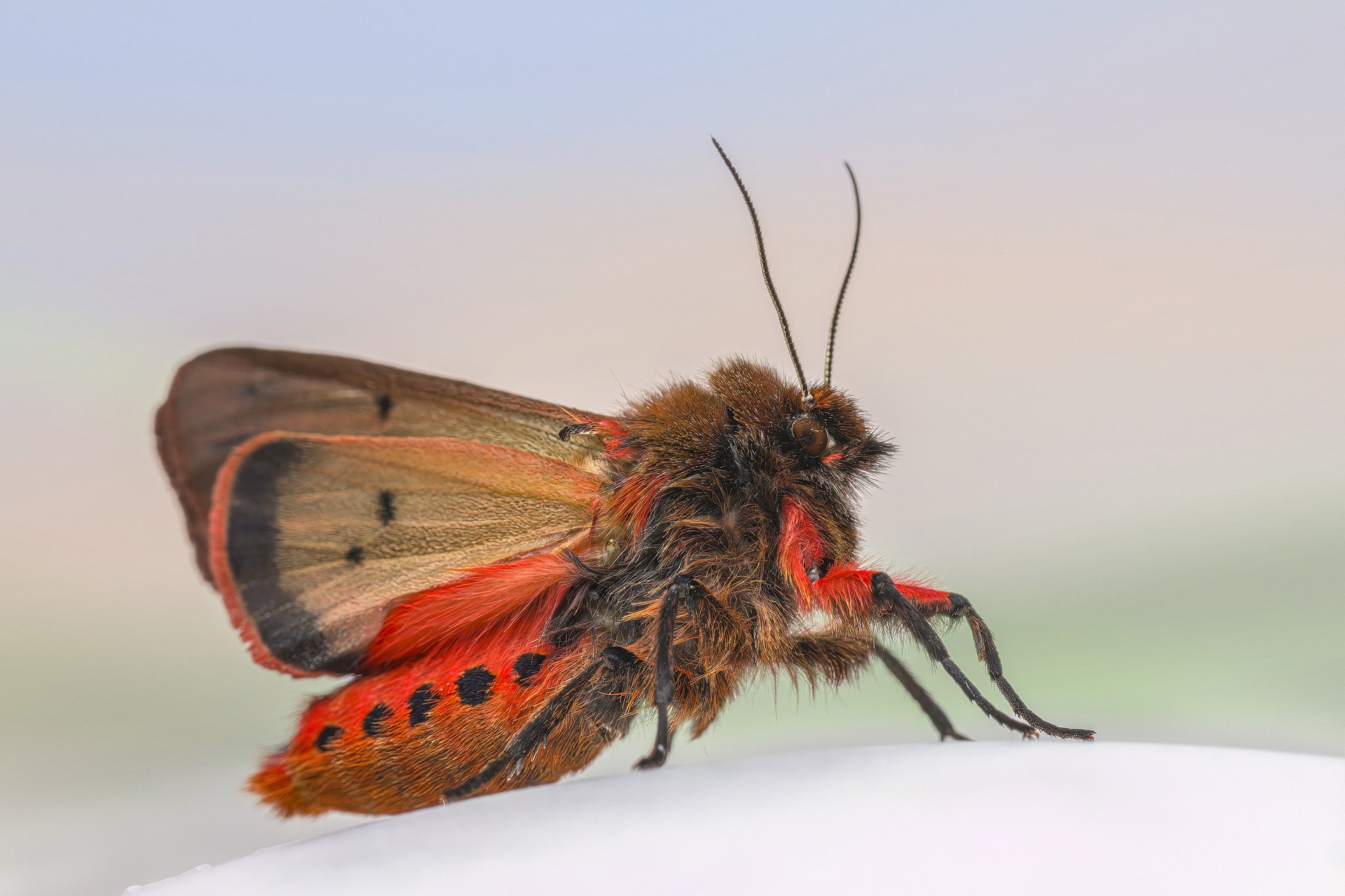Phragmatobia fuliginosa, commonly known as the Ruby Tiger Moth or the Ruby Tiger, is a species of moth belonging to the family Erebidae. Here are some key features and characteristics of Phragmatobia fuliginosa:
- Appearance: The Ruby Tiger Moth has distinctive reddish-brown forewings with black markings and a creamy-white or yellowish hindwing. It has a stout and furry body, typical of many moth species. The caterpillars of Phragmatobia fuliginosa are known for their bright colors, often displaying a combination of black, yellow, and red markings.
- Distribution: Phragmatobia fuliginosa is found in various parts of Europe, including the British Isles, Scandinavia, and central Europe. It also occurs in parts of Asia, such as Siberia and the Russian Far East.
- Habitat: Ruby Tiger Moths inhabit a wide range of habitats, including grasslands, meadows, woodland edges, gardens, and urban areas. They are often attracted to light sources at night.
- Lifecycle: Like other moths, Phragmatobia fuliginosa undergoes complete metamorphosis, with egg, larva (caterpillar), pupa (chrysalis), and adult stages. The caterpillars feed on various herbaceous plants, including nettles (Urtica species), dock (Rumex species), and dandelion (Taraxacum species). The adults emerge in the summer months and are active at night.
- Behavior: Ruby Tiger Moths are nocturnal and are attracted to artificial lights at night. They have a characteristic flight pattern, often fluttering around light sources. The caterpillars are covered in fine hairs and may exhibit warning coloration to deter predators.
- Conservation: Phragmatobia fuliginosa is not considered globally threatened and is a common and widespread species in its range. However, like many moth species, it may face threats from habitat loss, pesticide use, and climate change. Conservation efforts aimed at preserving and restoring natural habitats can benefit Ruby Tiger Moth populations.
Overall, the Ruby Tiger Moth is a beautiful and ecologically important moth species, contributing to pollination and serving as prey for various predators in its native habitats.
Visited 925 times, 11 visit(s) today
Views: 1480
